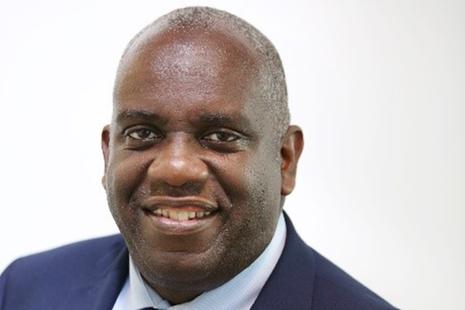British institutions need to stop being driven by so-called “white guilt,” the author of a government report on race and ethnicity said.
Tony Sewell, chair of the Commission on Race and Ethnic Disparities, warned against seeing “everything through the race lens alone,” saying institutions need to consider the “complexities” of racial disparities.
The remarks came days before the 75th anniversary of HMT Empire Windrush’s arrival in England, carrying onboard the first of Caribbean migrants who were later called the “Windrush generation.”
Owing to the British Nationality Act 1948, which gave Britain’s colonial subjects the same citizenship status as those who lived in Britain, many people moved to the UK from the Caribbeans during the next two decades without needing any documents.
After British law changed in 1971, the “Windrush generation,” along with migrants from other former British colonies, were given the right to permanently live in the UK, but poor record-keeping by the Home Office resulted in the so-called Windrush scandal, in which many Windrush immigrants were wrongfully denied access to work, health care, housing, and in some cases, wrongfully deported.
Speaking to The Times of London, Sewell, who was born in London to parents who moved from Jamaica in the 195os, said while racism remains a problem, disparities among groups are “complex for multiple reasons.”
Criticising those who attempt to “cling to the notion of black as some unifier,” he said people have to be willing to unpack “the real reasons” for disparities instead of seeing “everything through the race lens alone.”
The way to mitigate disparities in schools, isn’t “unconscious bias training for teachers,” Sewell argued. “It’s how do you support some of those families that are finding it difficult with their children, particularly boys, to engage in the schooling system.”
He also urged institutions to stop being driven by “sentiment, guilt, and lobby groups” and put more focus on facts and data.
“We need to stop being driven by what I call white guilt. I can see it in institutions—overreach, completely irrational responses, not considering the context and the complexities of issues,” he said.

Sewell, an education consultant who founded the charity Generating Genius, was appointed the chair of the Commission on Race and Ethnic Disparities by Boris Johnson in 2020 to examine inequality in the UK in the wake of global Black Lives Matter protests over the death of George Floyd in the United States.
The report identified family breakdown as “one of the main reasons” for poor outcomes such as educational failure and crime, and noted other factors, such as “geography, family influence, socio-economic background, culture, and religion,” have “more significant impact on life chances than the existence of racism.”
It dismissed the notion of “white privilege” and rejected calls for “decolonising” the curriculum in schools.
It also listed 24 recommendations that the panel believes would “improve the lives and experiences of individuals and communities across the UK” by building trust between communities and institutions, promoting greater fairness, encouraging agency in individuals, and nurturing social cohesion.
The government later accepted all of the committee’s recommendations, but the report was rejected by Labour, whose shadow equalities minister Taiwo Owatemi said it had failed to “acknowledge that structural racism exists.”
Nottingham University, where Sewell was awarded a PhD degree in Education in 1995, withdrew an offer of an honorary degree in 2022, citing the “political controversy” around him.







